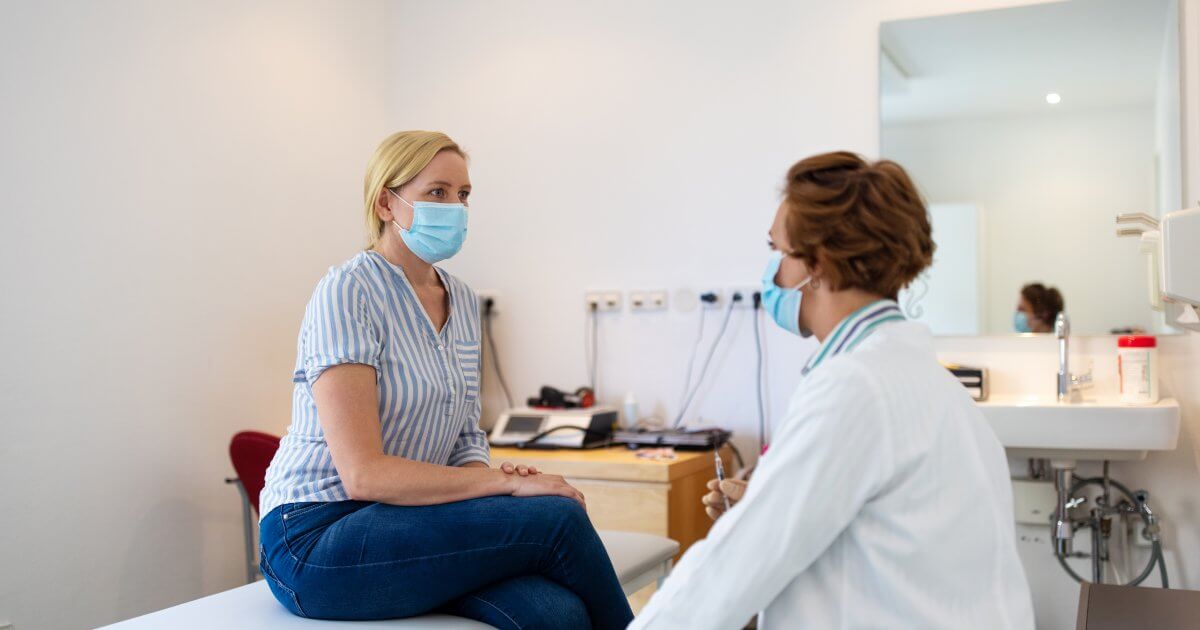An Emotional Misdiagnosis
- A UK hospital has admitted fault over a breast cancer misdiagnosis that resulted in a woman named Brenda Young from South Yorkshire having her right breast removed.
- To make matters worse, the hospice nurse had to ride out the pandemic to get reconstruction due to delayed surgeries.
- Leading experts tell SurvivorNet why getting multiple opinions is always best to avoid a misdiagnosis or provider bias.
Like other patients having procedures during the pandemic, Young had to go through it alone.
According to Newsweek, a spokeswoman for Barnsley Hospital NHS Trust told Yorkshire Live: “The trust has co-operated fully into the investigation and the findings of the report were shared with Ms Young. The hospital is always available to discuss any on-going concerns she may have.”
Director of nursing and quality for Barnsley Hospital NHS Trust Jackie Murphey wrote a letter to Young: “On behalf of the trust I would like to apologise that on this occasion the standard of care you received fell below that which you had a right to expect.”
Related: Second Opinions on Your Cancer Diagnosis or Treatment: Do You Need One?
They said that they are determined to help Young access support required “to come to terms with her ordeal.”
Rebecca Hall, a solicitor who looked into Young’s case, said, “We welcome the Trust’s apology and pledge to learn lessons. Patient safety should always be the fundamental priority in all care.”
Getting a Second Opinion is Crucial
Although Young’s story is tragic and unfathomable both mentally and physically, it is a crucial reminder of why getting a second opinion is so important. Doctors are human and mistakes can happen.
After a diagnosis, it’s OK to consider your doctor's treatment recommendations as the first step in figuring out what to do next. But having a plan for a second or third diagnosis is best to avoid any errors as in Young’s unfortunate story.
"If I had any advice for you following a cancer diagnosis, it would be, first to seek out multiple opinions as to the best care," National Cancer Institute Chief of Surgery Dr. Steven Rosenberg tells SurvivorNet. "Finding a doctor who is up on the latest information is important, and it's always important to get other opinions so that you can make the best decisions for yourself in consultation with your care providers."
Getting another opinion may also help you avoid doctor biases. For example, some surgeons own radiation treatment centers. "So there may be a conflict of interest if you present to a surgeon that is recommending radiation because there is some ownership of that type of facility," Dr. Jim Hu, director of robotic surgery at Weill Cornell Medical Center, tells SurvivorNet.
Other reasons to get a second opinion include:
- To see a doctor who has more experience treating your type of cancer
- You have a rare type of cancer
- There are several ways to treat your cancer
- You feel like your doctor isn't listening to you, or isn't giving you good advice
- You have trouble understanding your doctor
- You don't like the treatment your doctor is recommending, or you're worried about its possible side effects
- Your insurance company wants you to get another medical opinion
- Your cancer isn't improving on your current treatment
‘Be Pushy, Be Your Own Advocate,’ says Leading Expert
"Always Get a Second Opinion" San Diego Resident Lynn Brooks' Survivor Story
Learn more about SurvivorNet's rigorous medical review process.


